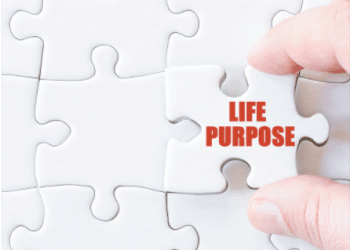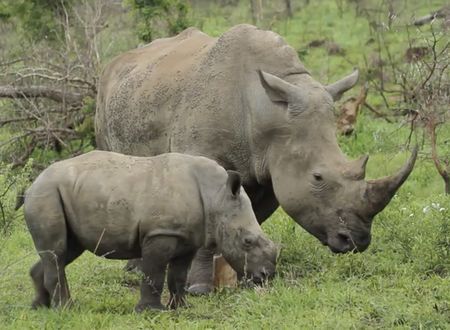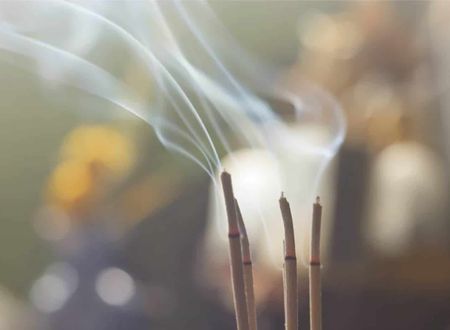What is my life’s purpose? How do I find my purpose? These two questions I get asked most frequently from people who have got everything going well in their lives.
When your tummy is as full as your bank balance and you can’t fall asleep, you naturally sit back and wonder (or worry) about the purpose of your life. It almost seems as if we want to have things that help us remain pensive and introspective. Those battling with life threatening diseases, under heavy debt or busy fighting court cases have never asked me about the purpose of their life. They are too engrossed in dealing with its harsh realities. In the last six years at the ashram, no villager has ever asked me about the purpose of his or her life.
But, what is the purpose of your life? Is it something anyone can give you? Let me share with you a real life story.
In 2011, I met a man called Sunil. He took care of my meals for one month during my stay in West Bengal. He was a simple worker, a caretaker, on a meagre salary. For one month, barely ever stepping out, I stayed in my small room — meditating and writing — while Sunil would bring me tiffin twice a day. Having a room with electricity and an attached washroom, set in beautiful hills at an altitude of 8,000 feet, was a welcome change after a year of austerity in caves and woods in the Northern Himalayas.
Sunil was an average-built, soft-spoken, short man, no more than 5’4″. Looking at his round and youthful face, you would think that he would be no more than thirty-five when he was in fact, 53 and just 5 years away from retirement he told me. He was of Nepalese descent, born and raised in India though. It would occur to me later that his kind heart and inherent goodness had a lot to contribute to his pleasant countenance.
One day, he sought my permission to bring his son for blessings. “You just put your hand on his head,” Sunil requested. “I’ll not take any more time.” I wasn’t keen on meeting anyone else during that one month but something in me made me say yes.
The next day, when he brought my tiffin, I opened the door to see a man standing next to Sunil. Taller and stockier than him, he must have been at least 40 years old if not more. Ample grey hair adorned his temples. He was autistic, probably at the lowest end of the spectrum. The cause of autism has always been very dear to my heart and I instantly started thinking what I could do to help this man.
“Please bless my son,” said Sunil. He tried to get this man to bow whom he introduced as Sandesh.
Though, I blessed him, I was truly intrigued.
“You don’t have to answer this, Sunil,” I spoke to him later that evening, “but, Sandesh looked a bit too old to be your son.”
“Yes, Baba ji,” he replied. “Twenty five years ago, one evening I had gone to a sweets shop to buy samosas for an officer who was staying at our guest house. There I saw Sandesh gazing at the sweetmeats. He was touching the display counter and the shopkeeper was telling him off. Sandesh came to me and pointed at the samosas I was holding. I looked around but saw no one with him. I enquired with the shop owner.”
“Don’t know from which sky he’s dropped,” the shopkeeper replied a bit irritated. “He’s been standing here for the last three days. I gave him something to eat on the first day and yesterday but I can’t do it everyday. He’s been sleeping outside my shop. He’s stinking like a dead rat and his presence here is not good for my business.”
“I tried asking Sandesh if he knew anyone around or if he knew where his family was, anything he could tell me about his address,” Sunil told me. “Sandesh just couldn’t communicate. He would just mumble and wail. I checked his pockets, they were empty. There was no tag around his neck or wrists. He was actually stinking beyond bear. It was clear to me that he had been lost for days. I fed him to his heart’s content at the shop and then I brought him with me. The officer gave me a big scolding for delaying his samosas.
“Without telling anyone in the management, I cleared a small storeroom and set his bed there. I gave him a thorough bath and put on fresh clothes on him. We managed to fit him into my clothes. I felt he was my son and that I had to take care of him. He slid in the quilt and slept for more than 16 hours the first night. I named him Sandesh, for he was God’s message, I felt.”
“After a couple of weeks, I spoke to the management,” Sunil continued, “They gave me the permission to keep Sandesh with me and feed him from our kitchen. I’m trying to get him a paid job here because now he can water the plants and clean the pathways completely independently. He can even bathe and dress up on his own. Whenever I go home, which is in another town, I take him with me. He loves it even more at home.”
Sunil shared that he had a daughter and a son but he wanted to do something for the world, so he adopted a girl when she was four years old, the daughter of their maid who died of cancer. His adopted daughter was a very good artist, he added, his chest swelling with pride. “She’s in fact better than my other two children and really helps around the house too.”
“After I got Sandesh, I put posters everywhere with his picture. On electric poles, on the back of trucks and buses, outside shops, at the bus-stand, everywhere I could think of. I filed a report in the police station. I placed an ad too in the newspaper to help me find his parents or any link to his past, but no one stepped forward. I took it as God’s will and decided to be his father and take care of him.”
My eyes welled up. While I had spent months and years in meditation and finding out some abstract truths of life, here was a man grounded in reality, someone who actually breathed and lived divinity. I respected him deeply.
“And three years later,” Sunil continued, “one day suddenly, I was called in the office where a couple had come to meet me. They claimed that Sandesh was their son and told me his real name. I was shocked. I couldn’t imagine my life without him. He was deeply attached to me. They showed me his old pictures with the family. I took them to his room. When they saw Sandesh and his room, they broke down.
Their tears didn’t stop for a good few minutes. The couple fell at my feet. ‘Even we never took care of him so well. You have done what we could never do as his parents,’ they said. ‘He’s never been so happy.’ They asked him if he wanted to go with them but Sandesh grabbed me tight and wouldn’t let go of me. I did take him to visit his family twice after that because his grandmother was dying and she wanted to see him. Sandesh recognized her instantly.”
“You are one of the most beautiful persons I’ve ever met, Sunil,” I said. “You are lapping up all this good karma. How desparately we need people like you in our world. I’m very happy that Sandesh found you — his real father.”
“Baba ji, my life changed after I got Sandesh. He’s so innocent and completely untouched by the cunning ways of the world. To look after him and my family is the sole mission of my life.”
I have always held that I can’t tell you what your purpose of life should be or could be, each one of us has to find it ourselves. I can tell you though the two most common mistakes people make when they think about purpose. First, they feel it has to be something grand. Something that’ll enable them to leave some kind of legacy behind or make them help a lot of other people (sometimes from the outset). Secondly, once they find their purpose, they’ll be flooded with peace and bliss.
If that’s your definition of purpose, you are unlikely to ever find one. The common challenges in life, its irritable nature at times, the disappointments, all that continues even after you find your purpose. The only thing that changes is your degree of motivation. Your cause gives you the motivation to pull on. If you are serious about purpose, start small, like very small, with one person. Do something more than you’ve done before, maybe different to whatever you might have done in the past.
Don’t wait for your purpose to approach you. Purpose is not a debt-collector or a credit card offer to come to you uninvited. It’s more like a Nobel prize. You have to earn your purpose. Work for it, be ready for it. In the autistic Sandesh, Sunil found his purpose whereas the shopkeeper perceived him as a nuisance. It’s how you look at life.
Once you find your purpose, working to fulfill it makes your life worthwhile. It gives you that madness we all need to pull through this world.
The other day I was putting sanitizer on my hands when Swami Vidyananda (an adorable monk who’s been in my personal service for more than six years), asked me innocently in his trademarked southern-spiced Hindi, “Sab germs mara gaya?” Are all the germs dead now?
“Yes, Swamiji. 99.9% as per the label.”
“Kahan gaya?” Where are they?
“What where?” I asked a bit puzzled.
“Mara hua germs kahan gaya?” Where are the dead germs now?
“They are still on my hands, Swamiji.” I broke into laughter. “I must admit that before you asked I never thought of the fate of those dead microbes.”
I haven’t been able look at a hand sanitizer with the same admiration ever since. No doubt, dead germs would be harmless, but they were still on my hands. Plus, they were dead.
So it is with our karma, we can’t just sanitize our past actions. They remain with us, on us, around us. Every word we utter, action we do, thought we pursue, it all adds up.
Add up your good deeds. One tiny act of kindness here, one gesture of affection there, a word uttered out of compassion, some help you extended someone. Assisting an old person or a disabled person cross the road, or just letting the lady with a child behind you to check-in before you at the airport, all these make up the purpose of our lives. These acts give us the strength to be good when everything around us may nudge us to be otherwise.
Be nice. Be human.
Peace.
Swami
Course
Art of Meditation
Free yourself from suffering and live life to the fullest. Learn the yogic technique of meditation in 4 days (and master it over a lifetime)
Our purpose doesn’t have to be driven by grandiosity. All it needs is the small acts. Living a life of purpose is defined by the kindness we show other beings. The following FAQs provide more insight into leading a purpose driven life and how it is very much in our hands.
I need help finding my purpose in life. What should I do?

Allow me to share with you my thoughts on the single most crucial trait, happy and successful people possess. It’s the lowest common denominator. If you examine the lives of the greatest inventors or the wealthiest people, the most charismatic leaders, or the finest artists, they all had or have it. If you wish to lead a purpose driven life, this trait is non-negotiable.
So, what is it? Read about living with purpose for the answer.
Is it wrong to be money-driven?
There’s something inherently disturbing about thinking of wealth as obscene. Material wealth is also incredibly important to human progress. Think of it any which way. Krishna would not have asked Arjuna to fight on, and the Vedas would not have put artha, economic progress, in the four endeavors of human existence, had there been a substitute.

Whether it’s intellectual or material wealth, what matters is not how much you have but where and how you are using it. It matters not how hard you are working for the wealth you seek but what you are sacrificing in its pursuit.
If anything at all, what matters is if it’s enough for you, according to you. Is it? Is it allowing you to lead a purpose driven life?
Continue reading about the ultimate wealth we gain by living with purpose.
What is humanity’s purpose in life?
Ever since I can recall, no matter what any seeker asked me, the gist of it was:
- How do I make (and measure) spiritual progress?
- How do I be at peace always?
- What is the purpose of my life?
If each spiritual question was a coffee bean and I ground all of them most carefully, I would end up with this fragrant powder of human consciousness. Further, if I ran the steam of wisdom through it for just the right amount of time, the result would be quite an amazing shot of insight – the insight espresso.
Today, I’m serving you that shot of espresso. I’m offering you one of the finest and most sacred paths of liberation. Finest because it works in this day and age, sacred because it will catapult you to the heights of greatness. But, liberation from what, from whom you ask? From the self-doubting, chattering mind that rejoices in petty thoughts and pulls you down. Liberation from your shadows, from the wrongs you’ve done and wrongs done to you. Is it even possible?
Yes, there is hope.
You can rewrite your destiny.
You can erase your karmic imprints.
You can step into another world of consciousness.
Continue reading about the purpose of your life.
Why do people need to believe life has a purpose?
Call it a mid-life crisis or a higher calling, at some point in time, every educated mind is faced with the most important existential question of their life: Why am I here? What is my purpose in life?

I get it all the time from some of the most intelligent people. They ask me, how do I know my purpose in life, how do I find it?
The discovery of your purpose in life or the truth of your life is akin to finding your voice, being alive one more time, it’s like being born again. The czar of meaninglessness has spared you, it feels. Nothing is more frustrating and boring than being directionless. That’s where purpose in life comes in; it gives you direction.
The question remains: how to find your life’s purpose?
What’s the point of life?
Your fulfilment is going to come from pursuing what matters to you. What does matter to you? Do you know? Take a deep breath, slow down, stop, reflect, examine and you will have an answer before long. You need not carry on living a certain way just because everyone else seems to be doing it.
Whether you are trading stocks or seeking truth, driving Ferraris or flying daggers, so long as you love what you do, you will experience joy. If you keep at what you are passionate about, you will find many willing to be a part of that passion. Continue reading about leading a purpose-driven life because Nature will reciprocate when we stay course patiently.
A GOOD STORY
There were four members in a household. Everybody, Somebody, Anybody and Nobody. A bill was overdue. Everybody thought Somebody would do it. Anybody could have done it but Nobody did it.
Don't leave empty-handed, consider contributing.It's a good thing to do today.









Comments & Discussion
34 COMMENTS
Please login to read members' comments and participate in the discussion.